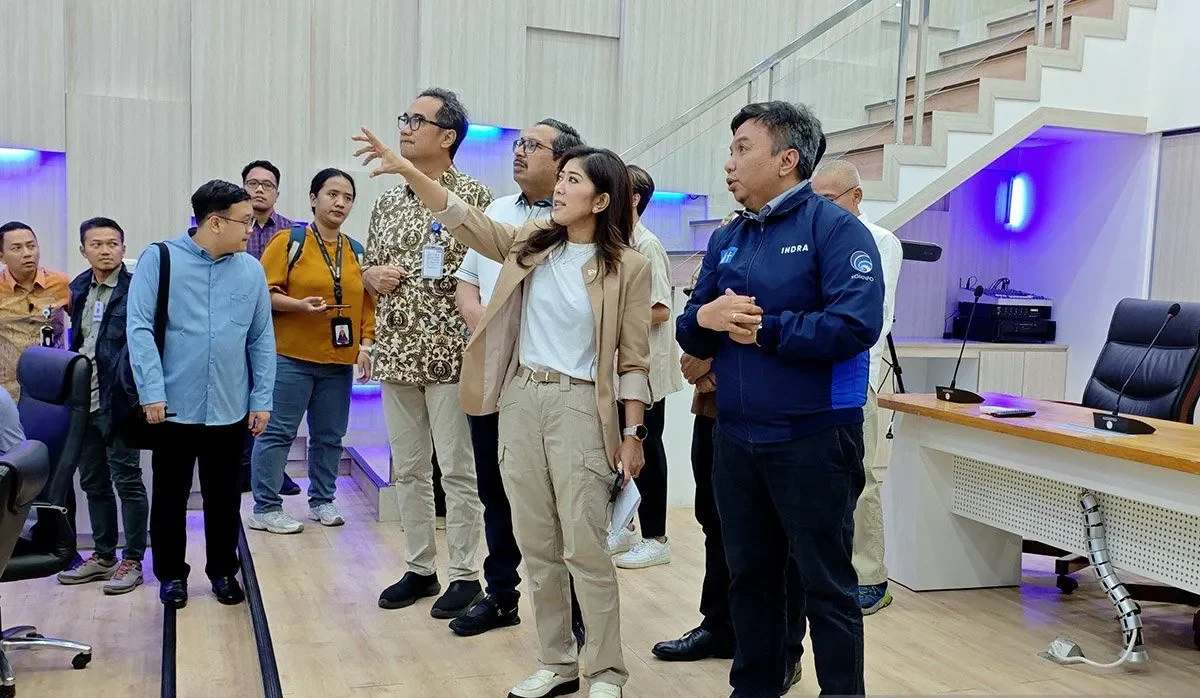Jakarta ( WNAM MONITORING): The Ministry of Communication and Digital Affairs is pursuing a digital transformation based on synergy and collaboration to support the Golden Indonesia 2045 vision.
During her two months in office, Communication and Digital Affairs Minister Meutya Hafid has focused on implementing strategic steps for digital transformation, including efforts to realize meaningful connectivity, an empowering digital ecosystem, and a safe and sovereign digital space.
“Inclusive connectivity is the key to digital justice. All people, without exception, must feel the benefits of technology to improve welfare,” Hafid said in a statement issued on Tuesday.
As a foundation for digital transformation, she informed, the government is accelerating the development of digital infrastructure in the frontier, disadvantaged, and outermost regions of Indonesia.
The government is building more than 120 base transceiver station (BTS) towers in Papua, with the target of providing communication services to one thousand remote villages in 2025.
In October 2024, Minister Hafid visited Eunoni village in East Nusa Tenggara to check public access to telecommunications services.
When Mount Lewotobi erupted in November, her ministry responded quickly to address connectivity issues in disaster-affected areas.
It also mobilized cellular operators to provide free Internet access quotas to support education and telecommunications services for residents affected by the disaster.
According to the ministry, sustainable digital transformation requires an innovative and empowering ecosystem.
To realize such an ecosystem, the flagship Digital Talent Scholarship (DTS) program has been implemented to train more than 100 thousand digital talents in artificial intelligence, cybersecurity, and data analysis by 2024.
Next year, the ministry will aim to increase the number of participants to 200 thousand with special attention to micro, small, and medium enterprises (MSMEs).
In addition, there is the MSME Click & Grow program, which is being run in collaboration with Shopee and TikTok to help MSMEs adopt digital technology.
“The MSME sector is the spearhead of the digital economy. We want to ensure that they not only survive, but grow in this era of transformation,” Hafid said.
She is also focusing on efforts to create digital space security.
In the past two months, more than 250 thousand items related to online gambling content have been blocked, thousands of illegal bank accounts have been closed, and influencer accounts that promote illegal activities have been prosecuted.
To realize a safe digital space, the ministry is working with the Financial Transaction Reports and Analysis Center (PPATK) and the Financial Services Authority (OJK).
“The digital space must be free from illegal activities that harm society. We ensure that a safe digital space is a priority to protect children and families,” Hafid said.
Along with the Ministry of Women’s Empowerment and Child Protection, the Ministry of Communication and Digital Affairs is finalizing the draft regulation on Child Protection Governance in the Implementation of Electronic Systems.
It will regulate the use of digital services based on age.
Hafid is also encouraging strategic cooperation with countries such as Germany and Japan to strengthen Indonesia’s position as a major player in the global digital ecosystem.
Digital transformation is designed to create new jobs and support inclusive economic growth, she said.
“Digital transformation is the path to Golden Indonesia. We are committed to ensuring that every step brings real benefits to society, from inclusive connectivity to an empowering digital ecosystem,” she added.


